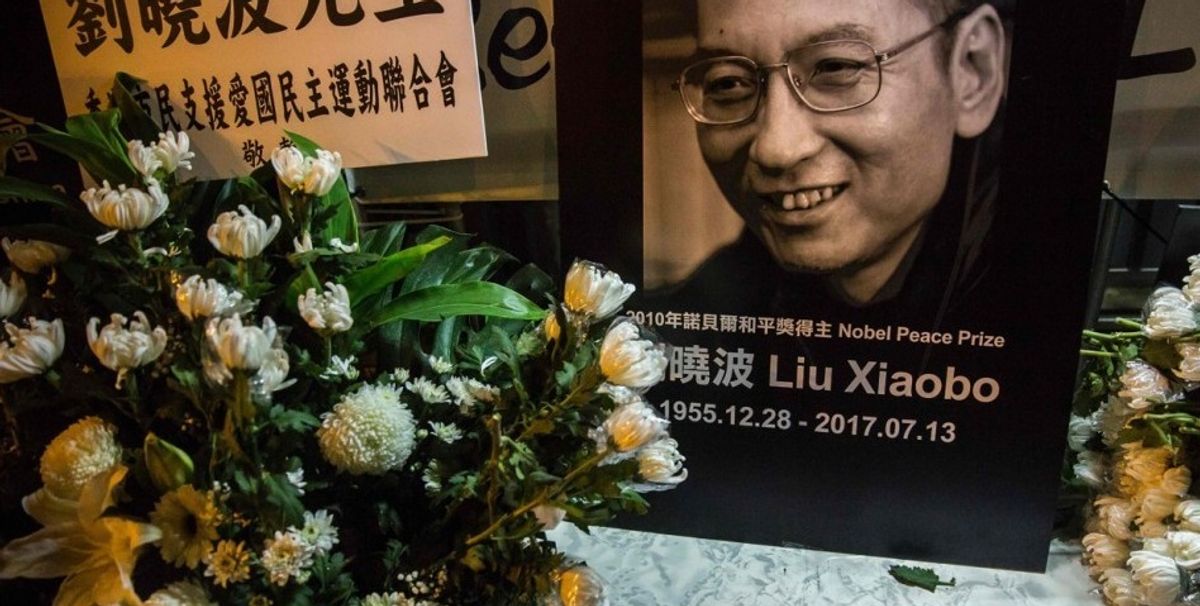The death on Thursday of Chinese dissident activist and Nobel laureate Liu Xiaobo elicited an outpouring of grief and anger in China, particularly from its artists. Though usually preferring to remain safely apolitical, members of the Chinese art world defied a ban on covering or mentioning Liu and expressed their sorrow and frustration at his death through mostly indirect references on Chinese social media.
Ai Weiwei, the Chinese dissident artist now living in Berlin, told the BBC yesterday: "It still comes as a big shock... because he has been such a symbol for China's human rights or democratic movement." Ai said of his friend, "I think Liu Xiaobo will be remembered as an individual, a strong mind, with his belief, and as a brave fighter, believing in democracy and freedom of speech. And he sacrificed his life for his belief."
His compatriots still based in China, though unable to speak so freely, found creative ways to mourn Liu on the social media platform Wechat. According to some reports, the national outpouring was so widespread that the government banned the emojis for candles and clasped hands on Twitter clone Weibo, though they remain permitted on Wechat.
Articles mentioning Liu's death, with titles like "The Death of Freedom", were quickly expunged, but artists and curators have instead posted screenshots of the error message, with comments like, "Do you not understand what bullshit this is!" Screengrabs of global media reports were also popular, as technology currently does not facilitate the searching of textual images.
One artist listed the characters of Liu Xiaobo's name but on different lines, slowing their removal. Many posted simple all black or grey squares were posted to represent censorship, sometimes adding the prayer and candle emojis and references like Liu's age of death, 62, or simple expressions of gratitude.
Some posted the works of Liu Xiaobo's poet and artist widow Liu Xia, who remains under house arrest, depicting mutilated dolls positioned in bleak landscapes. Paintings of empty chairs referenced the empty seat at Liu Xiaobo's 2010 ceremony for the Nobel Peace Prize, which the Chinese government refused to release him to receive.
Liu Xiaobo was a professor spurred to activism by the Tiananmen Square protests of 1989, and negotiated the safe passage of hundreds of students from the square. In and out of prison since for his fearless criticism of the government, he was last sentenced to 11 years in 2009 for co-authoring Charter 08, a 2008 call for political reform and greater freedom.
Officials announced Liu's terminal liver cancer last month, and moved him to a hospital in Shenyang under high security but refused to release him for treatment abroad. And while his name can be erased from China's public domain, his memory remains powerfully present.


